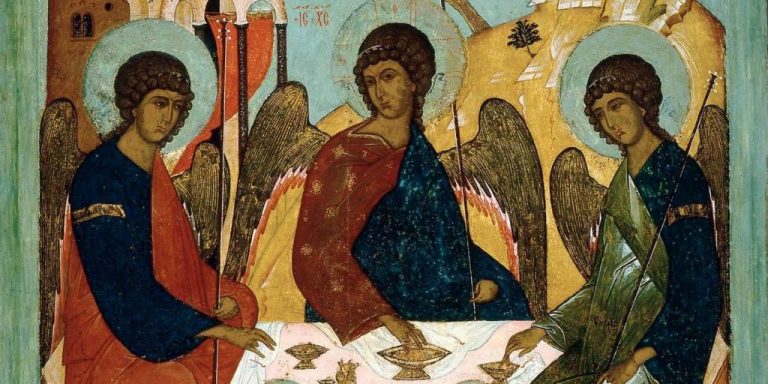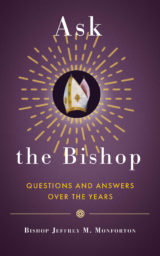By Bishop Jeffrey Monforton
Bishop Jeffrey M. Monforton is the bishop of Steubenville, Ohio. He is the former rector of Sacred Heart Major Seminary in Detroit. Ask the Bishop began as an initiative in Bishop Monforton’s diocesan newspaper, where children of all ages could write in questions about the faith and receive a response from the Bishop.

God is eternal. In other words, God is the One who does the creating. The Book of Genesis instructs us that God created time and the universe in which we live. Of course, as people who measure what we do by “keeping time,” it can be difficult to understand the concept that God has always been around.
Perhaps we may look at it this way: God created time for our benefit. God created the world in order that you and I may worship him and to share in his joy. God did not need us when he created us, but he certainly intended you and me to be here. Just as God’s work is not limited to finite laws of this world, he is not limited by time, since he created it.
Speaking of time, people have been asking this question for a very long time. The Catechism of the Catholic Church even acknowledges this in paragraphs 282–285. As we ascertain the inner workings of the universe, such as through the laws of physics (as we understand them), more questions seem to emerge. In our common curiosity about the beginnings of creation, the understanding of an eternal God transcends the discipline of the external sciences.
God is. Whether or not we employ external scientific data or the Creation Narrative from the Book of Genesis, we account that God existed before time itself. The Catechism explains that “The existence of God the Creator can be known with certainty through his works, by the light of human rea son” (286). Remember, “the created” is trying to understand the Creator. Not an easy task, but one that requires both faith and reason.
I bring up faith because we know God did not simply create the universe and walk away. That’s called Deism, and it misses the point of Jesus’ Suffering, death, and Resurrection: the New Creation. Only the One who existed before time could recreate the world in the divine gift of his Son. God is constantly with us and has willed the universe into existence, and recreated it in his Son for our benefit and for us in return to love God and to give him glory in our lives. God has no beginning, but out of his divine love, we do.
We should also look at the words used to describe the Holy Trinity: three persons, one God. The faith life of every Christian is based on the reality of God the Father, God the Son, and God the Holy Spirit. Jesus himself revealed this truth in his prayer to his Father and in his teachings to his Apostles. To be Christian is to believe in and to be baptized in the “name of the Father and of the Son and of the Holy Spirit” (Mt 28:19).
Also, the Holy Trinity is a mystery that we profess as a truth in the Creed every Sunday. Many a book or article has been published concerning this mystery. It is our faith, which complements our ability to reason, that allows us to appreciate this truth. The Holy Trinity is an object of faith.
It seems easier to explain what the Holy Trinity is not. For instance, there are many components to a computer. Only when all the parts are put together do we have a computer. The screen itself is not a computer. Or, for those of us who know the periodic table from our days in school: When we combine two hydrogen atoms with one oxygen atom, we get water. There are three parts to water. Only when you combine them do you have water. While these examples give us some good images, neither is an accurate explanation of the Holy Trinity.
All three Persons of the Holy Trinity possess the fullness of God. This is very difficult for us human beings to comprehend with our limited reasoning ability. It requires faith in the words of Jesus to understand that God’s plan for us greatly exceeds our human intellect.
You Might Also Like

Questions about the Catholic faith deserve serious answers—especially when they are posed by children. In Ask the Bishop, Bishop Jeffrey Monforton thoughtfully responds to important questions asked by kindergarteners through high schoolers.